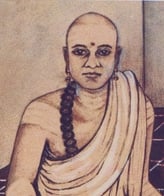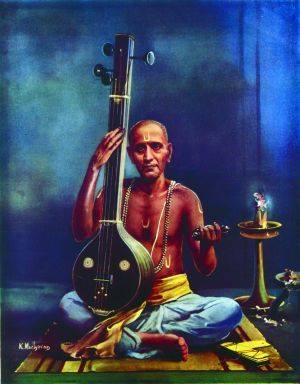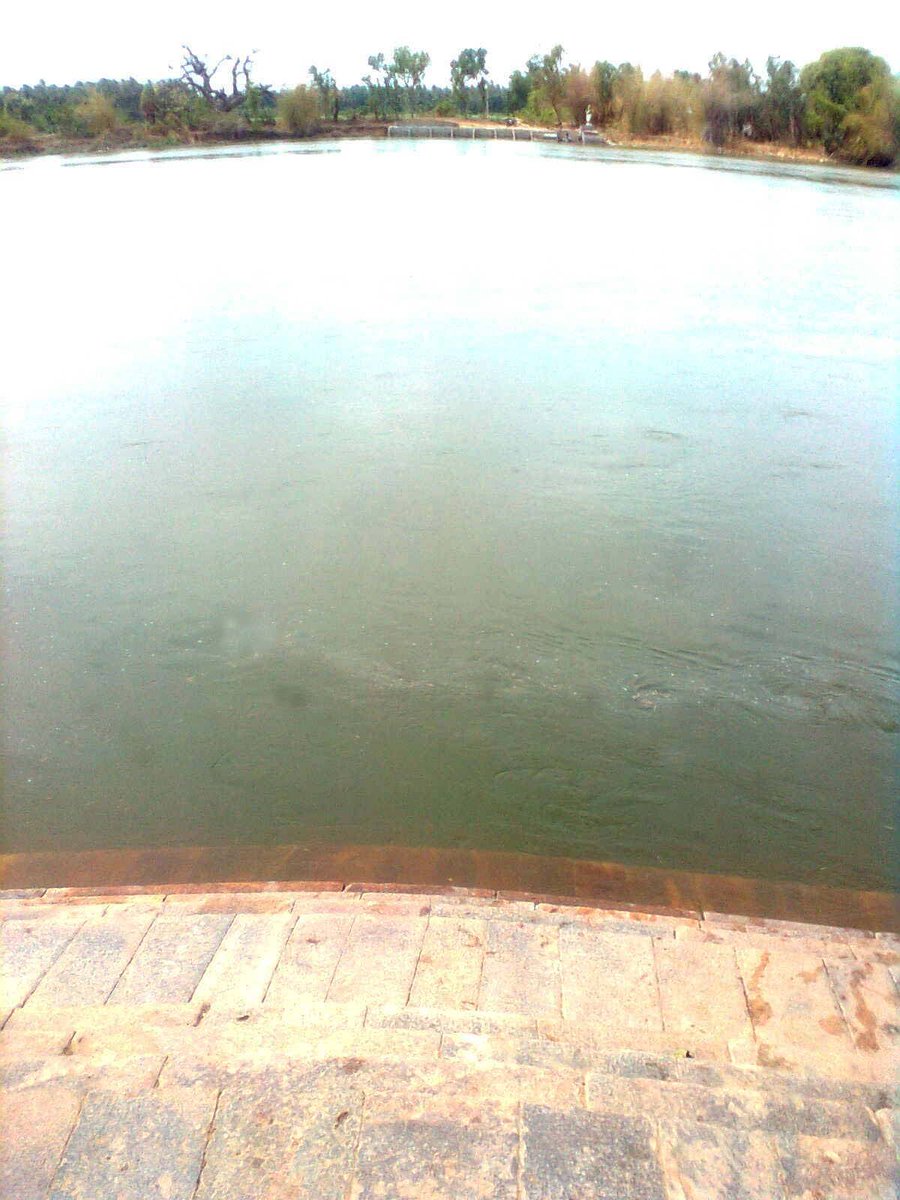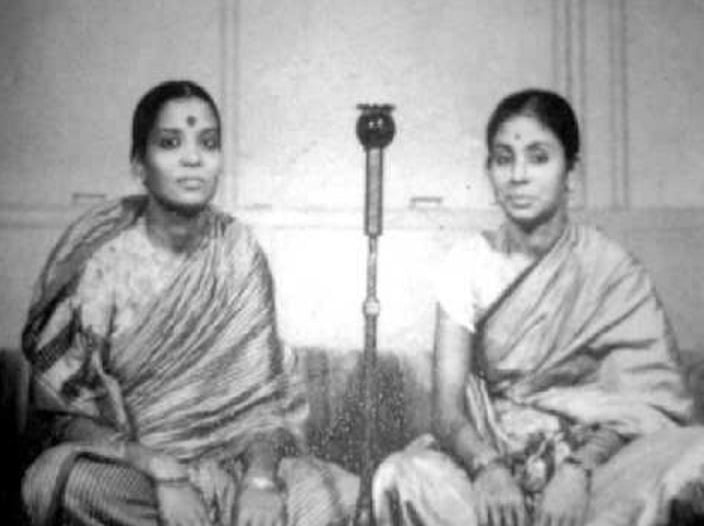Totally overwhelmed to read though Shri Ravi & Sridhar's write up. (Copied from their FB post)
I wish i could time travel & watch this glorious incident.
Long thread
" It is only 4 days to Deepavali. For music lovers, Deepavali signifies not just new clothes,sweets and crackers
I wish i could time travel & watch this glorious incident.
Long thread
" It is only 4 days to Deepavali. For music lovers, Deepavali signifies not just new clothes,sweets and crackers
It signifies the passing into Eternity of a Sangeetha Mahapurusha, Sri Muthuswamy Dikshitar. The great composer attained mukti on 21st October 1835,a Deepavali day. It is 185 years since Dikshitar left his body. An early tribute, both written as well as in song.
The below extract
The below extract
forms part of a series on the life of Muthuswamy Dikshitar, titled, 'The Eternal Pilgrim' which we wrote in the now extinct website http://sangeetham.com .
THE ETERNAL PILGRIM and THE ETERNAL MINSTREL
An account is traditionally handed down of the meeting between Tyagaraja
THE ETERNAL PILGRIM and THE ETERNAL MINSTREL
An account is traditionally handed down of the meeting between Tyagaraja
and Muthuswamy Dikshitar. It is said that when Dikshitar was singing his MadhyamAvati composition ‘Dharmasamvardhani’ at the Tiruvayyaru temple, a few of Tyagaraja's disciples were present there. Savouring the exquisite music, they enquired of one of Dikshitar's disciples and
gathered details about the composer. They then hurried to their guru and told him of Dikshitar and his music. It was not that Tyagaraja was hearing about Dikshitar for the first time. Great mahApuruShAs are certainly aware of each other, only that they do not reveal their inner
cognition. Dikshitar too must have heard of Tyagaraja from many people and most certainly from Shyama Sastri. He must also have listened to the bard's compositions. Tyagaraja asked his disciples to invite Dikshitar home. The bard's disciples returned to the temple and informed
Dikshitar of Tyagaraja's invitation, which the former accepted. Tyagaraja regularly recited the Valmiki Ramayana. On that day he had come to the episode of the coronation of Sri Rama. Could there be a greater occasion for the two puruShOthamAs of music to meet than the
paTTAbhiShEka day of the Purushothama Himself? Tirumanjana vIdhi where Thyagaraja resided is just a stone's throw from the Goddess Dharmasamvardhini shrine in the Panchanadeeswara temple.
The bard rose to meet his younger, nevertheless equal contemporary.
The bard rose to meet his younger, nevertheless equal contemporary.
After mutual respects were over, Tyagaraja requested Dikshitar to stay on and witness the pUja which he performed after the Ramayana recitation. The Rama dAsA's worship on that paTTAbhiShEka day thus acquired a special sacredness. A big crowd of disciples and residents of
Tiruvaiyyaru gathered to witness that momentous event. It was a surcharged atmosphere. After the pUja, dIpArAdhanA and ShODasha upachArAs,Tyagaraja bade his disciples sing. It was to be his bhairavi masterpiece ‘koluvaiyunnADe’. The whole of Tirumanjana street resonated with
the song of its renowned resident. Tyagaraja slowly turned to Dikshitar and requested him to sing on 'my Rama'. The small but majestic, centuries old paTTAbhiShEka icon of Rama with Sri Sita, Bharata, Lakshmana, Shatrugna and Anjaneya, complete with the maNTapa and worshipped by
Tyagaraja's ancestors and bequeathed to him as heirloom is truly awe-inspiring. Its spiritual power is quite discernible to those who approach it with utmost reverence. What wonder then that Dikshitar sat enraptured?
Was it the mystical power of the icon or the deeply religious atmosphere that pervaded the entire place or the bard's own powerful spiritual presence? It was perhaps a combination of all the three that inspired Dikshitar to dive deep within, to tap his innermost artistic
resources. The strain that came out of his very depths, out of his very being had to be special. And it was. The rare maNirangu discovered itself. Dikshitar built a grand edifice for the rAga and bestowed immortality on it. It was an extraordinary edifice, a grandly decorated
manTapa (maNirangavalli alankrita maNTapE) studded with the gems of exquisite gamakAs and phrases that Dikshitar gifted to the rAga and made it fit for Tyagaraja's Rama to revel in. The misra chApu tALa that Dikshitar chose for its rhythm was the most appropriate foil.
mAmava paTTAbhirAma, a classic par excellence was Dikshitar’s tribute to Tyagaraja's beloved Rama. The song describes the coronation of Sri Rama in exactly the same manner as Valmiki's Ramayana does. The kriti was also appropriate to the occasion and the spirited, sublime music
coupled with the majestic sAhitya enshrined the presence of the Lord in the hearts of those who had the great fortune of listening to it. The residents of Tiruvaiyyaru who witnessed the momentous meeting between the two high priests of art music felt elevated and the event took
eternal place in their hearts. Such rare, sublime occurring are seldom spoken of too. The Eternal Cauvery, whose privilege it was to host this great event must have felt proud at the meeting and outstanding accomplishments of Her two bosom children, one, the Eternal Pilgrim,
the other, the Eternal Minstrel.
Illustrations: Dikshitar, Thyagaraja and their beloved Mother, the Eternal Cauvery behind Thyagaraja’s Samadhi and T.Brinda and T.Muktha.
Illustrations: Dikshitar, Thyagaraja and their beloved Mother, the Eternal Cauvery behind Thyagaraja’s Samadhi and T.Brinda and T.Muktha.
‘Mamava Pattabhirama, raga Manirangu, misrachapu tala, sung by T.Brinda and T.Muktha. From their 1965 Music Academy concert. This composition was dear to the Veena Dhanammal family. "/ End
The illustrious devadasis, women of pride ! Always a joy to listen to Brindamma & Muktamma
The illustrious devadasis, women of pride ! Always a joy to listen to Brindamma & Muktamma
Contd.. 


 Read on Twitter
Read on Twitter





